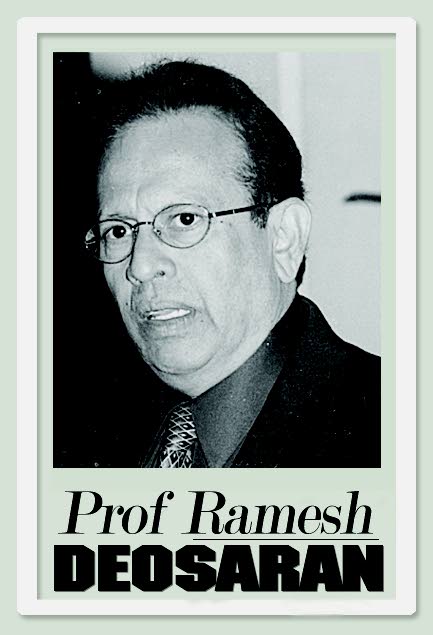Political ‘prisoners’

Prisoner. This word of course means “a person kept in prison,” but it also means “a person confined by illness, another’s grasp, etc.” The person could also be confined, imprisoned, by a political culture which resists change. In our case, it is the demeaning culture surrounding our political party system which persists in spite of repeated appeals for improvement.
The recent budget debate between the Government and the Opposition in Parliament (House of Representatives) left many people disappointed, some even angry. The Newsday editorial stated: “What is the use of all this if the level of discourse remains vapid, unmoored and deeply partisan? Another year, another budget debate. What have we learned? We hear that every year,” (October 18). You will hear it again next year, and years after. That is “the system of party politics.”
And both Ms Kamla Persad-Bissessar and her UNC party, and Dr Keith Rowley and his PNM party are “prisoners” of the system which thrives on reciprocal animosity. Many other MPs may wish the system could be more amiable and mutually productive. For illustration, MPs Rushton Paray, Franklyn Khan, Rohan Sinanan, Kazim Hosein, Esmond Forde, Lovell Francis, David Lee even Speaker Bridgid Annisette-George etc may be more comfortable. But today’s politics require rough and tough personalities in give and take fashion – Newtonian politics – with public interest consensus the sacrificial lamb.
Bluntly, the MPs really can’t do otherwise. Taking the high moral ground is to lose to the other side. And citizens who are disappointed may be consoled by understanding the nature of the beast. Politics itself, however defined, always contained a measure of perversity, be it in capitalism or socialism, to the point where late US President Ronald Reagan in 1977 remarked: “Politics is supposed to be the second oldest profession, but I have come to realise that it bears close resemblance to the first.”
The party system is such that the opposition is compelled to make the government look like a failure. You would have heard during the budget debate and on the UNC platform about “this corrupt, incompetent government led by PM Dr Rowley.” Then the PNM government side, one by one, also felt compelled to expose the “corruption, financial waste and mismanagement” by the previous UNC government, meaning that they should remain in opposition. That is pure Westminster democracy, making it difficult to blame the MPs. If the UNC were in government, same thing.
Two things here. Firstly, the exchanges in the debate seemed more about politics than economics. This could be excused to some extent – policy development and planning include political judgements. There is, therefore, some rationality in the apparent perversion.
But the politics remained too self-serving. It is difficult to have political loyalties detached for a higher purpose, for example, the budget. Hence the Newsday Editorial wondered if the debate would be “any better” when the Money Bill comes to the Senate.
Secondly, maybe our expectations, both ethical and political, are much too high, too great as inspired by 1962 speeches. Hence our repeated disappointments and anger today. Our political system contains several contradictions, a major one being the entrenched practice of diffused political patronage while encouraging individual rights and equal opportunity. Even the constitution gets into a war with itself.
From 1956 until now, our political parties cannot survive without resting on heavy patronage – party supporters expecting reward and putting people into high government positions without the required competence and integrity. This system indirectly protects fraud and mismanagement.
We seem imprisoned by a political party system that suppresses equality of opportunity, aggravates and sustains ethnic tensions and frustrates all-round economic development. The system lacks some of the civilising values (eg moral restraint, shame) that help temper its crassness. It seems that rather than having our great expectations broken time and again, we may have to accept things as they are for a long time.
It is one man one vote, but when morphed into representative government, partisanship grows and constituencies left far behind. Regrettably, it seems we can do no better, especially when, increasingly, many competent and honest citizens shy away from party politics. Or will joint select committee transparency, procurement legislation and constitution reform help free us from having this troubling system of political ‘prisoners’?


Comments
"Political ‘prisoners’"